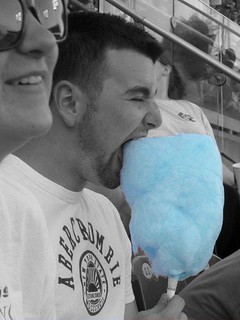
I watched the most incredible TED talk last night. It was led by this super-intelligent Japanese high school student named Ami Mizuno. She was talking about the superheroine group the Sailor Senshi and how they reflect a more feminist, egalitarian and shame-free view of femininity, especially in the ways that femininity relates to literal power and personal agency.
Needless to say I was floored.
Crafting my Fantasy TED Talk ended up being really fun. : D I’ll take any excuse I can get to return to a favorite story.
To say that Sailor Moon was a formative show for me is kind of an understatement. I idolized those characters as a kid, I drew them constantly, tried to figure out which of the girls I’d get along with the best. It was my gateway anime, and from there I devoured every other anime and manga I could get my hands on. As I’ve grown older Sailor Moon has only become more fascinating and important to me (although I can no longer listen to the English dubs without crying). There’s the fact that Sailor Moon teaches girls that there’s no “right” way to be a woman, that all kinds of girls can be friends with each other. It teaches girls that love, supportive relationships and dogged determination in the face of challenges are essential to a successful life. There’s the fact that the princess rescues her prince nine times out of ten and everyone treats it as perfectly acceptable because duh, Sailor Moon is the moon princess, of course she’s more powerful than Tuxedo Mask. That’s a pretty major reversal from… oh, every other story ever. There’s the fact that Sailor Moon includes fully-developed queer characters and constantly plays with the idea of gender (to the point of having characters who can change their physical sex in the anime).
And then there’s the final, ultimate awesome thing about this show: it clearly broadcasts the message that girls’ feelings, their relationships, and everything that makes them girls is powerful. Powerful enough to save the entire galaxy, and without ever taking on an affect that is ascribed to “masculinity.” The Senshi fight painful, bloody battles and die for the people they love, they face impossible odds again and again, and they do it in heels and miniskirts (which none of them are ever shamed for wearing). In a culture that frequently tells women that the only way for them to be “powerful warriors” is by developing a sudden aversion to anything feminine, that anything a woman feels should be monitored in case she’s being “hysterical” or a “crazy bitch,” that viciously criticizes what they wear or how they look no matter WHAT they look like, Sailor Moon stands up and says, “You’re a girl and you are AWESOME.”
Obviously, I have a LOT of feelings about this show. My dream TED talk would have to be someone going into detail about all the points I made earlier, as well as Sailor Moon’s shortcomings (body image, anyone?), and ends by discussing what it can teach us about how we write stories for and about women and girls.
When I had to choose a fictional character to lead the panel, I of course went with Ami, the brains of the Sailor Senshi. While computers and mathematics are her strong suit, I’ve no doubt she would be amazing giving a talk on anything, including feminism in pop culture–and of course, nobody would ever guess that she’s really talking about her best friends and fellow warriors.































